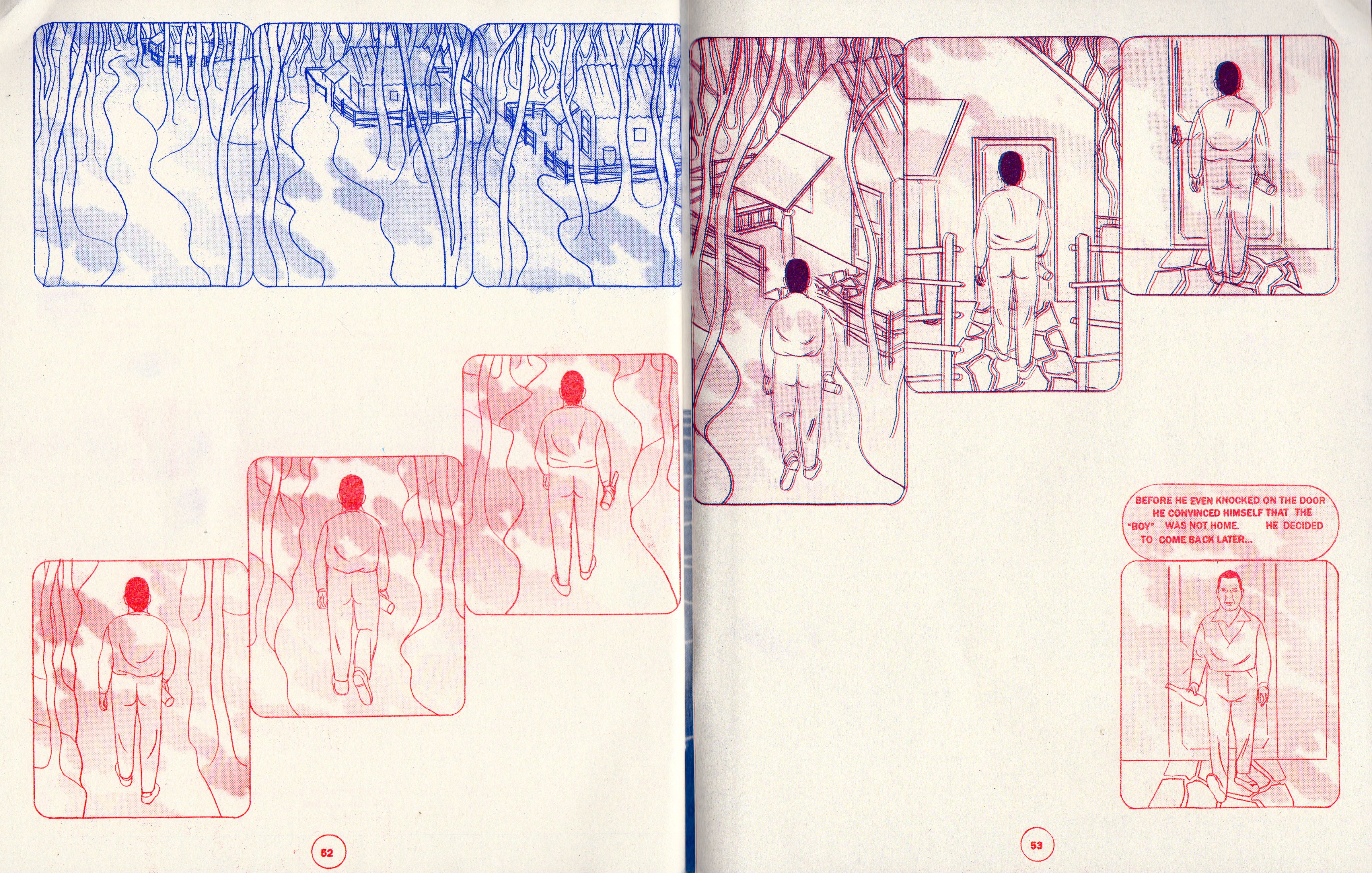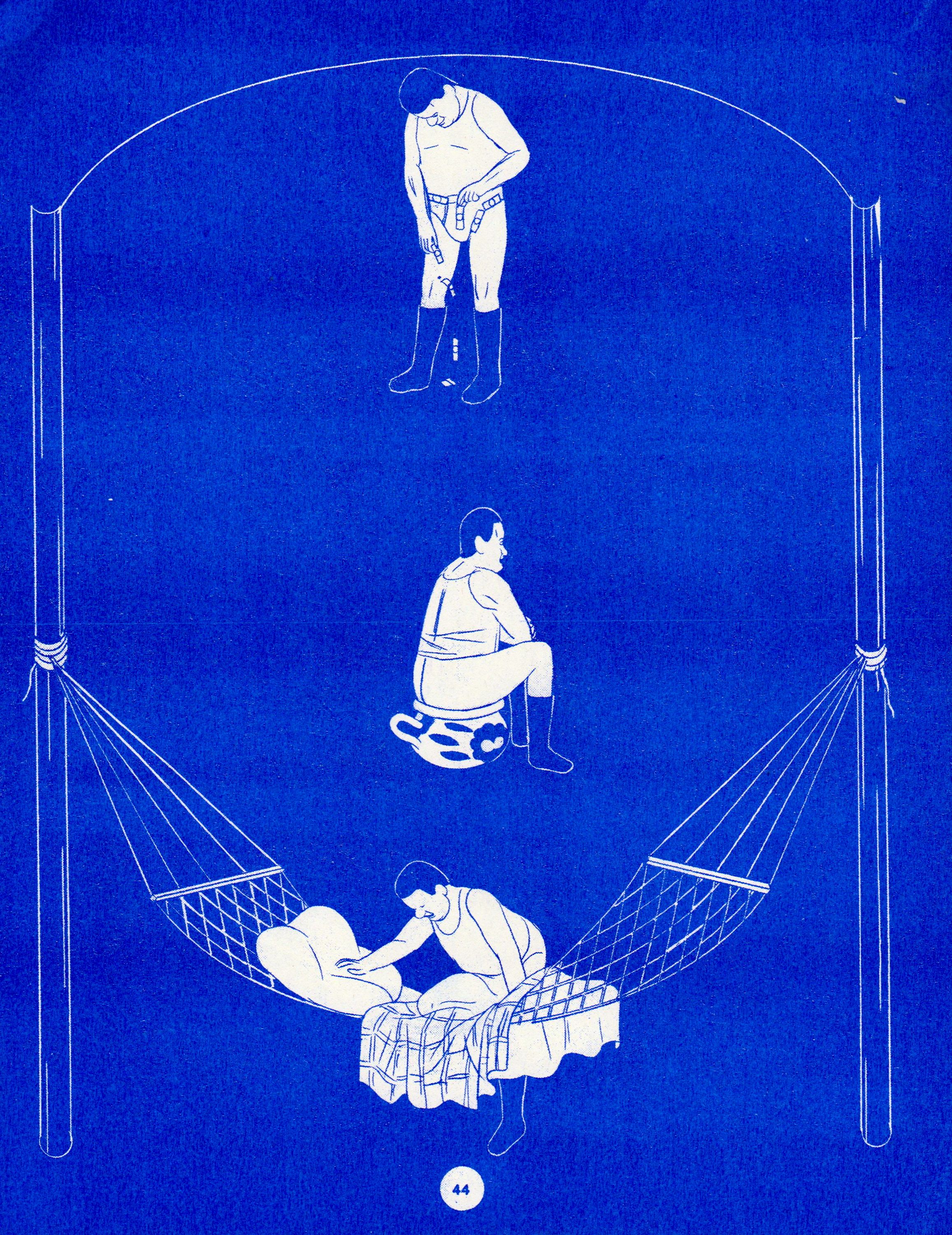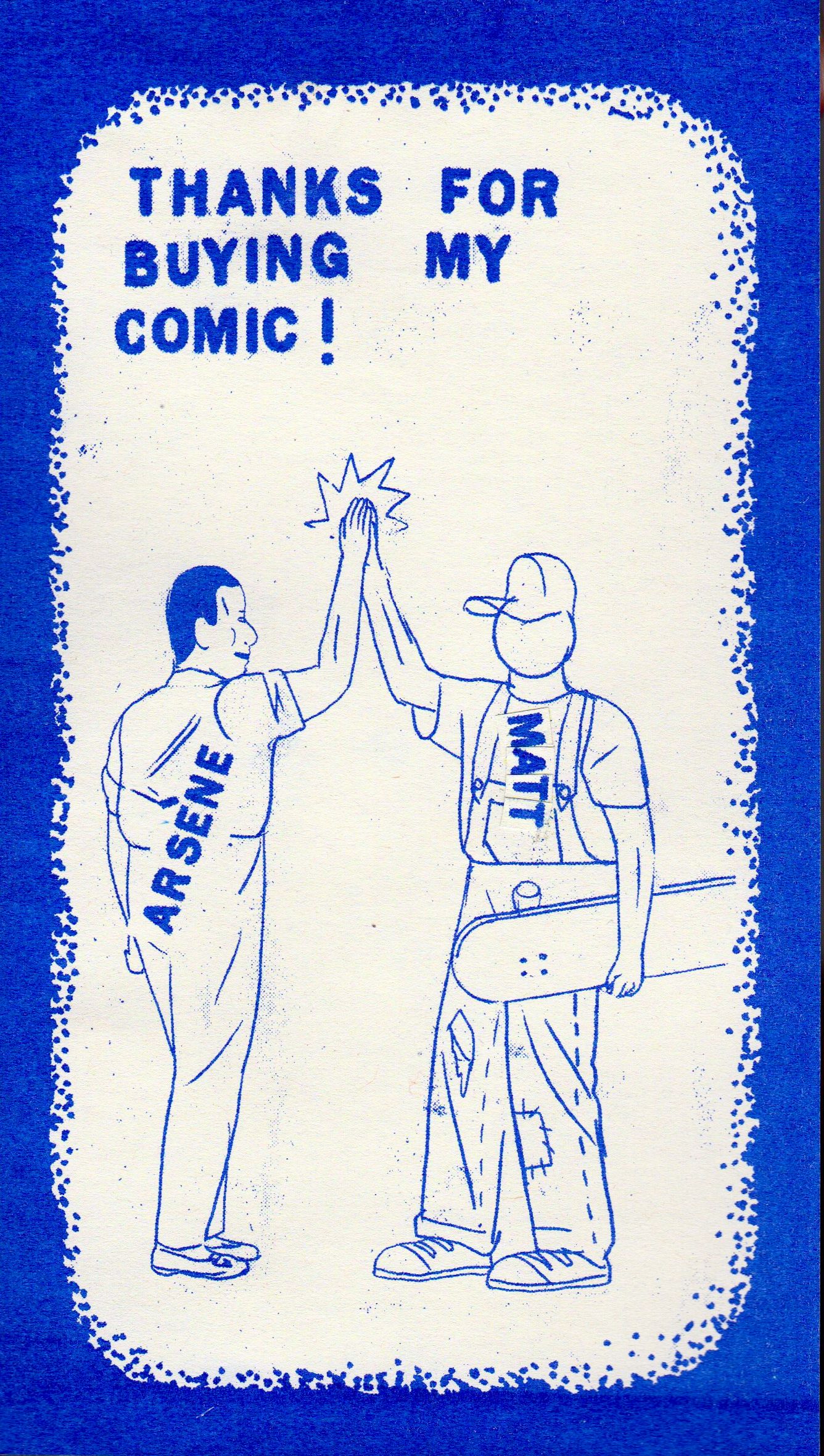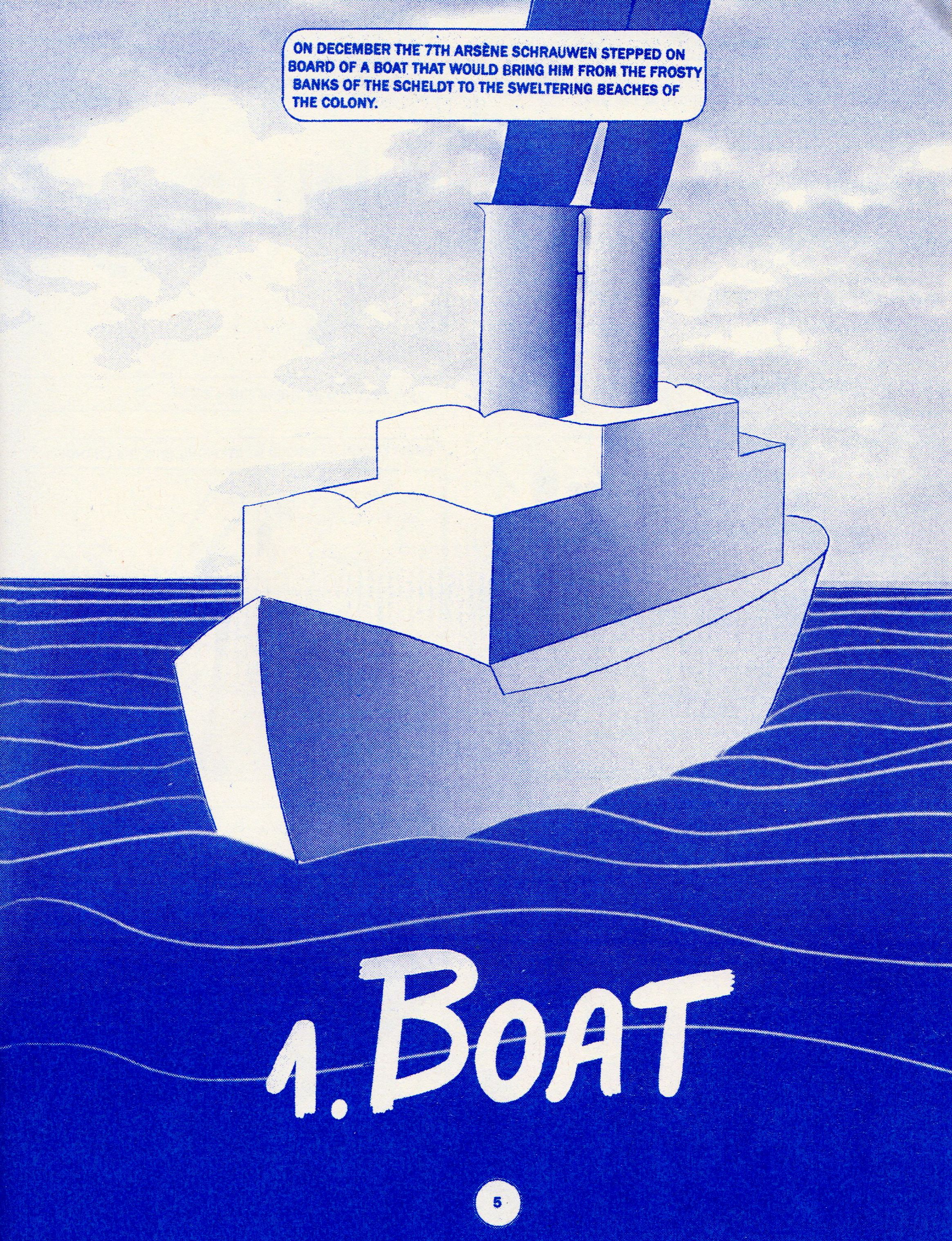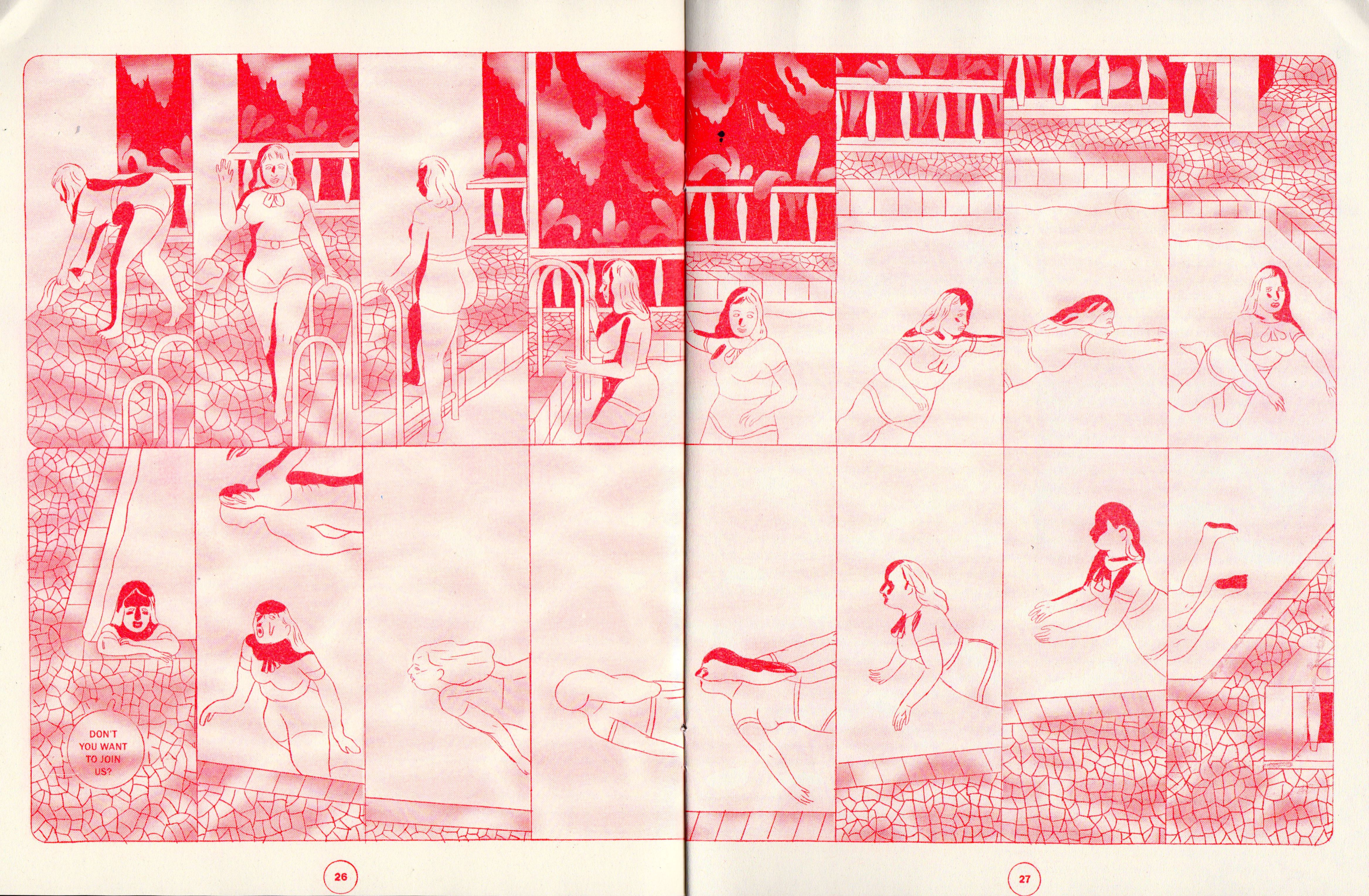The greatest comics of all time don’t appear on bestseller charts or canon lists or big-box bookstore shelves. They are the property of the back issue bins and thrift store crates and convention tables of the world, living like the medium itself in the unseen crags and pockets of publishing history…
Arsene Schrauwen #1 (of 3), by Olivier Schrauwen. 2012. Self-published; printed by Zaadmat.
Best single image:
A study in contrasts, like this whole comic: a complex composition drawn in a bone simple style, the most banal of subject matter given the most elegant of treatments.
Suggested soundtrack for this comic: You can't go wrong with this stuff.
How acquired: In the same dreary manner as I get most of the best comics these days: ordered off the internet. There's a riff to unspool here about how our current era is the one that's providing the least institutional support for the cutting edge of comics art, but the reality of it is that publishers and retailers may just have finally learned that the great unwashed (that's all you jerks reading this) just doesn't want to read comics that push any boundaries. And so goodbye to the stories of stumbling across some hidden gem in a dollar bin, of being directed toward the real stuff by a knowing comic shop employee, of trying something wild because the cover leaps out from the new release racks. Unless you live in a major city the only way to get the best comics coming out today is knowing what they are and then submitting to the depressingly impersonal tyranny of Google searching and PayPal-ing. It's almost like Belgian art-comics savant Olivier Schrauwen knew these were the thoughts syruping up my mind when I ordered this first installment of his (English language) graphic novel in progress; when I opened the Deutsche Post envelope it came to me in, this scrap of paper fluttered out.
The history lesson: Arsene Schrauwen is one of the most thoroughly modern comics I've ever come across -- and it was published only a couple months ago -- so it's appropriate that there isn't much history to it, or rather that the history it concerns itself with is all displayed on the page. Announced with no fanfare whatsoever on its author's Blogspot website, it quickly sold out its first mail-order only print run (see rant above about the lack of visibility enjoyed by truly interesting comics today). At 56 Risograph-printed pages, it rides both the trendy Riso wave and the "beautiful objects" school of modern object making, whose logic demands that if something exist in non-digital form, it do so fabulously.
It's more interesting to look at Arsene Schrauwen in the context of its creator's career than that of comics as a whole: for years Schrauwen has been making gorgeously realized, visually immense, quite often hilarious comics that were a little too weird or conceptually daring to really hit as satisfying narratives. Both his graphic novel My Boy and his many shorts in Fantagraphics' Mome anthology were clearly superior to just about any comics out there, but beyond that it was a little difficult to know what to make of them. In Arsene Schrauwen, though, the strangeness of Schrauwen's work is dialed back, and the story takes on that oldest of narrative forms, the biography. Arsene Scrauwen is the story of its artist's grandfather and his time as a colonist in the Belgian Congo, and it manages to fold all Schrauwen's previously displayed obsessions -- culture clash, lowbrow humor, colonialism, and continental European life in the early part of the 20th century -- into a single engrossing, often beautiful narrative. This is where an interesting cartoonist becomes one of the great cartoonists.
Why it's the greatest comic of all time: Honestly, there's nothing else in comics like Arsene Schrauwen, at least not yet. The comic sees Schrauwen, whose drawing in past projects has encompassed everything from expert Winsor McCay pastiches to rawdog Edvard Munchian art-comix, settled into a refined, streamlined style that takes equal parts from the resplendent technical-manual rigidity of Yuichi Yokoyama, the clean, blunt mark-making of CF, and the old-world elegance of early newspaper comics. The main emphasis here is on making things as basic and functional as possible: six-panel grids capture shot after shot of full figures framed from straight-ahead angles, with every word in the book presented as a machine-printed caption. It's a remarkable display of restraint from an artist who's been known to seriously go for the gusto in his past work -- but when Schrauwen does break down for a moment and dish out formalist layout tricks, as below, the effect is that much more powerful, especially given how his commitment to pinpoint precise linework never wavers.
Just as admirable is the ease with which Schrauwen uses his two-tone Risograph printing process. The hot reds of daytime scenes change into to the cold blues of night and back again: when the cabin on the Belgian steamer in which Arsene makes his journey to Africa goes from blue to red in a single panel as it enters the intolerable jungle heat, the effect is nothing short of stunning. The decorative sense on display throughout the book is also highly impressive: simple dot screens are manipulated into complex, twisting patterns that wash over the panels' bold line art and the blank spaces between frames, fogging them up with steamy heat or dappling them with the shifting shadows of a canopy of trees. Again, no single effect Schrauwen uses is anything more than obvious -- the most basic color theory, the simplest mechanical tones -- but with five or six different formal elements per panel working in concert and achieving exactly what they're meant to, the extent of this comic's graphic mastery is dizzying.
And no less is true for the story, which manages a seamless blend of alt comics' emphasis on pulling jewels from the haystack of normal people's daily lives and adventure comics' journeys into dangerous climates, unfamiliar situations, and new ideas. Arsene is the very picture of the Everyman: noble in his foolishness, easy to laugh at but impossible not to sympathize with. We see the book's colonial landscape through his wide, perpetually astonished eyes, and we feel the unwanted surges of emotion rise as he falls head over heels for his cousin's wife a few moments after his feet first touch the African soil. But Schrauwen refuses to give his book over to the kind of aching, over-earnest display so many alternative comics indulge in; every poignant moment is punctuated by outbursts of raucous, earthy humor, with characters transmogrifying into wooden marionettes or sexually aroused donkeys at the drop of a hat, the regularity of Schrauwen's basic, unemotional framing only driving the punchlines that much deeper. Arsene Schrauwen is that rarest of reads, something both truly deep and truly fun, not to mention utterly beautiful. If ever a small-run foreign comic demanded an American publisher, this is the one; at the moment it's winning Comic of the Year honors without any competition at all.

